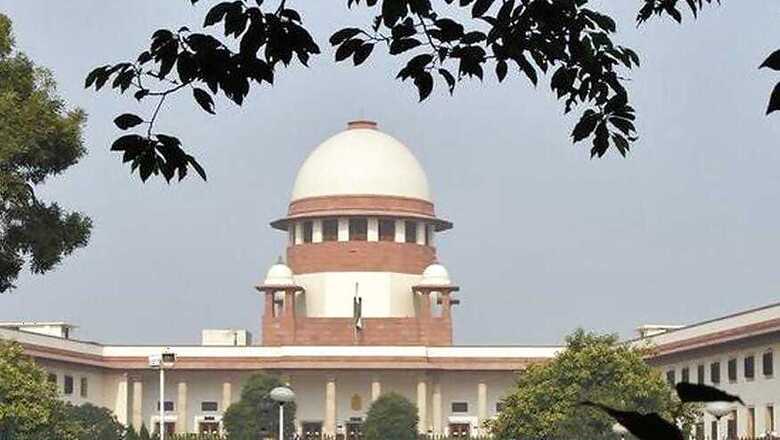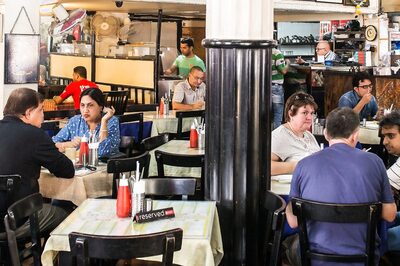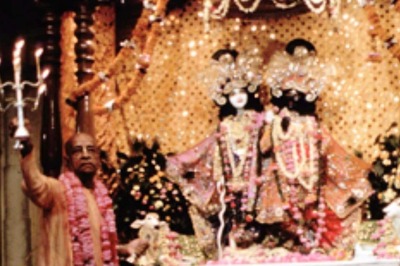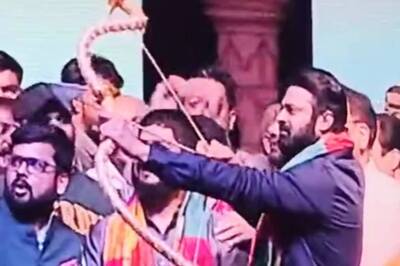
views
New Delhi: The Supreme Court on Monday stayed the execution of death row convict Tahir Merchant in the sensational 1993 Mumbai serial blasts case.
The top court sought a response from the CBI in six weeks and called for the case records from the special TADA court in Mumbai, which had awarded death sentence to Merchant, Firoz Abdul Rashid Khan and life imprisonment to gangster Abu Salem.
Merchant was convicted among others in the second stage of trial in the case as he was absconding.
As many as 257 people were killed and 718 suffered grievous injuries, with some of them suffering disabilities, were killed in the serial blasts at 12 places in Mumbai on March 12, 1993.
A bench of Chief Justice Dipak Misra and Justices Ashok Bhushan and M M Shantanagoudar issued notice to the CBI and directed the registry to call for the lower court's records.
"The State of Maharashtra is directed to compile the evidence in entirety and file the compilation in convenient volumes and also serve a copy thereof to the counsel for the appellant (Merchant)," it said.
While staying the execution of the death sentence awarded to Merchant, the bench listed the matter for further hearing on March 14 next year.
Merchant had challenged the September 7 order of the special TADA court which had held that he was amongst the main conspirators.
"The evidence proves the anguish, agitation and frustration expressed by Tahir due to situation prevailing in Bombay during the period of riots in January 1993," it had noted.
He worked with (absconding conspirator) Tiger Memon and had participated in several conspiracy meetings in Dubai. Tahir made travel arrangements, financed the stay and travel of several co-accused and facilitated their training in Pakistan, the court had noted.
"The role of Tahir in conspiracy is prominent. He is one of the initiators of the conspiracy," the court had said in its ruling on June 16.
On Tahir's role, the court had observed that he was absconding and, by remaining in Dubai, he has deprived the investigating agency of necessary assistance to investigate the case.
Salem had escaped the noose and was handed down life imprisonment due to a provision in the Extradition Act.Besides Salem, the court had sentenced Karimullah Khan to life imprisonment, while awarding 10 years in jail to the fifth convict, Riyaz Siddiqui.
The court had referred to the worldwide scenario and the menace of terrorism and said it was pertinent that a case relating to terrorism cannot be treated at par with other offences.
It had also imposed a fine on the five accused totalling Rs 27.09 lakh. Firoz Khan was fined Rs 4.75 lakh, Karimullah Khan Rs 8.88 lakh, Tahir Merchant Rs 4.85 lakh, Abu Salem Rs 8.51 lakh and Riyaz Siddiqui Rs 10,000.
The court had in June convicted six persons, including prime accused Mustafa Dossa and Salem, 24 years after the blasts had left 257 people dead. It, however, let off accused Abdul Quayyum for want of evidence.
Salem, a notorious gangster considered close to fugitive mob boss Dawood Ibrahim, escaped death sentence as the Extradition Act bars India from seeking capital punishment for an accused extradited from a country where the practice is not in force.
Before Salem's extradition in 2004 following his arrest in 2002 in Portugal, India had assured Lisbon that he would not be awarded capital punishment if convicted.
All the seven accused faced multiple charges including criminal conspiracy, waging war against the government and murder. The trial court, in its June 16 ruling convicting the six accused, had held that the prosecution had proved that Salem was one of the key conspirators and had delivered three AK-56 rifles and ammunition and hand grenades to actor Sanjay Dutt, who was convicted under the Arms Act in the earlier phase of the trial.
Salem, who was close to Dawood Ibrahim's brother Anees Ibrahim and Dossa, took upon of himself to bring a part of arms and ammunition from Dighi to Mumbai, the court had said.
The trial of Abu Salem, Mustafa Dossa, Karimullah Khan, Firoz Abdul Rashid Khan, Riyaz Siddiqui, Tahir Merchant and Abdul Quayyum was separated from the main case as they were
arrested after the first set of trial had already started. Dossa had died of cardiac arrest at J J Hospital in Mumbai, shortly after being convicted.




















Comments
0 comment